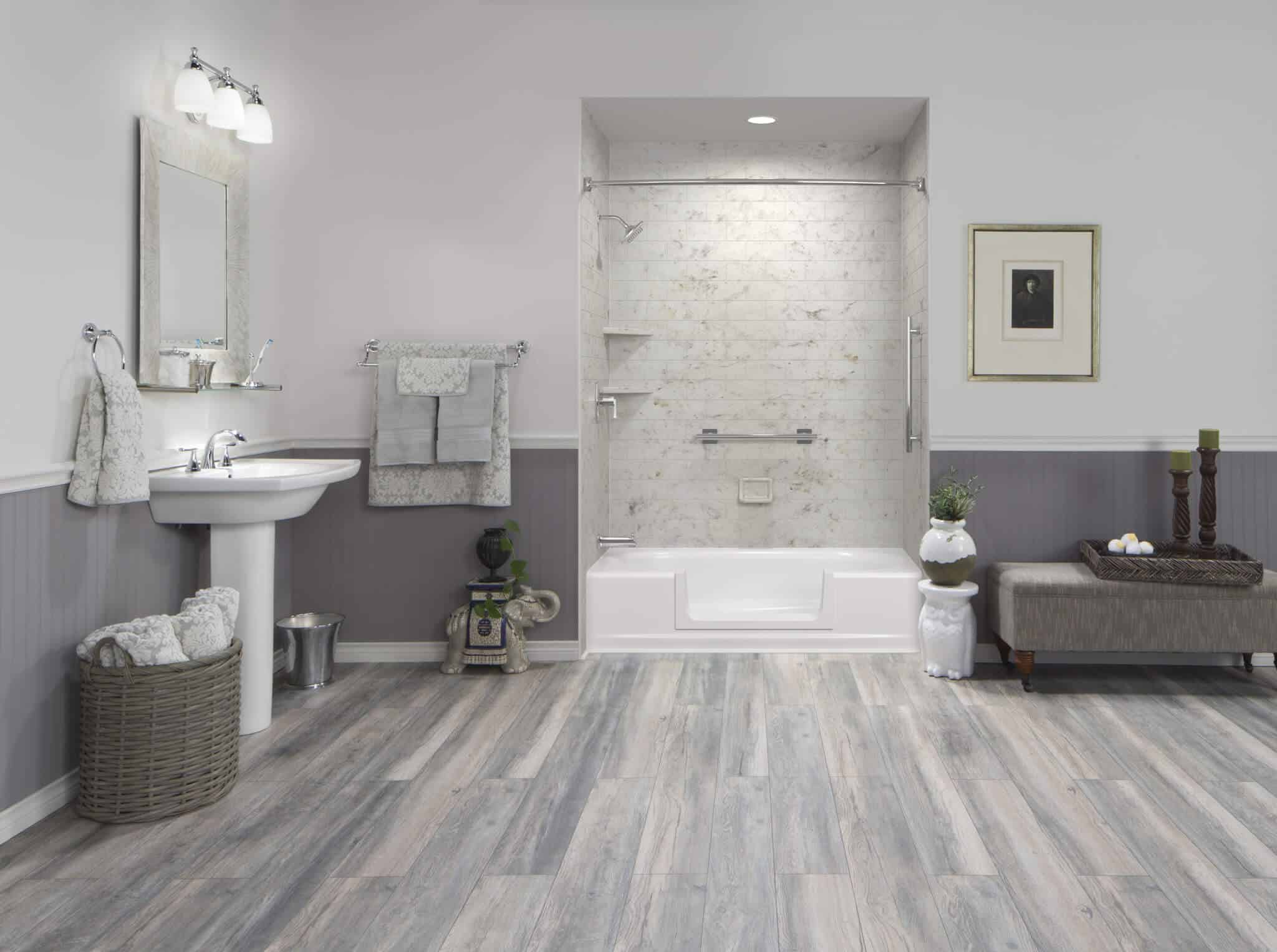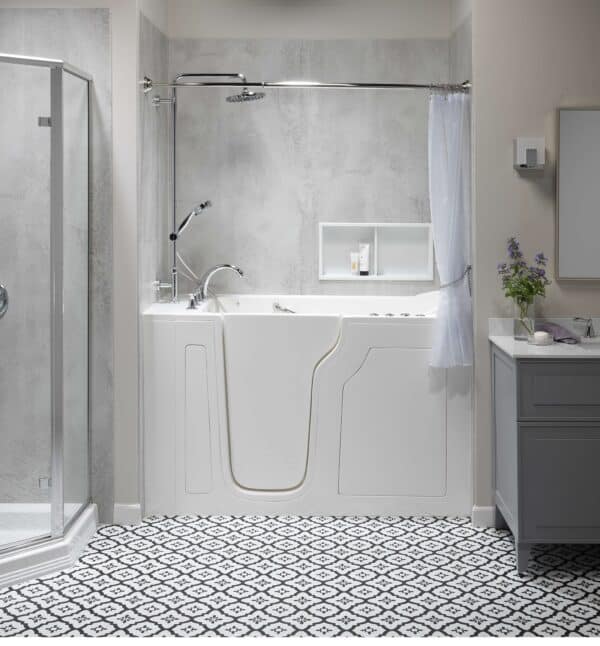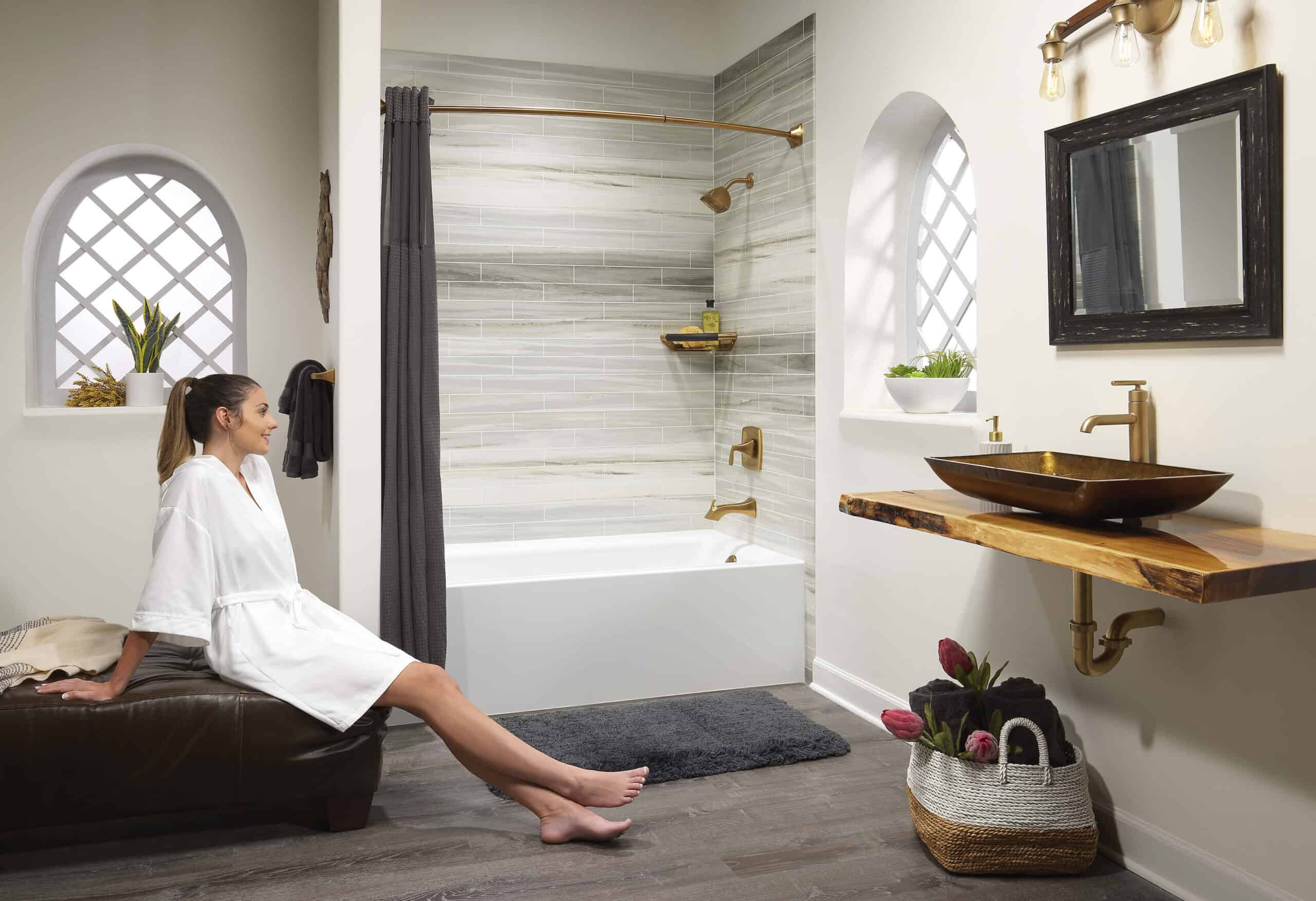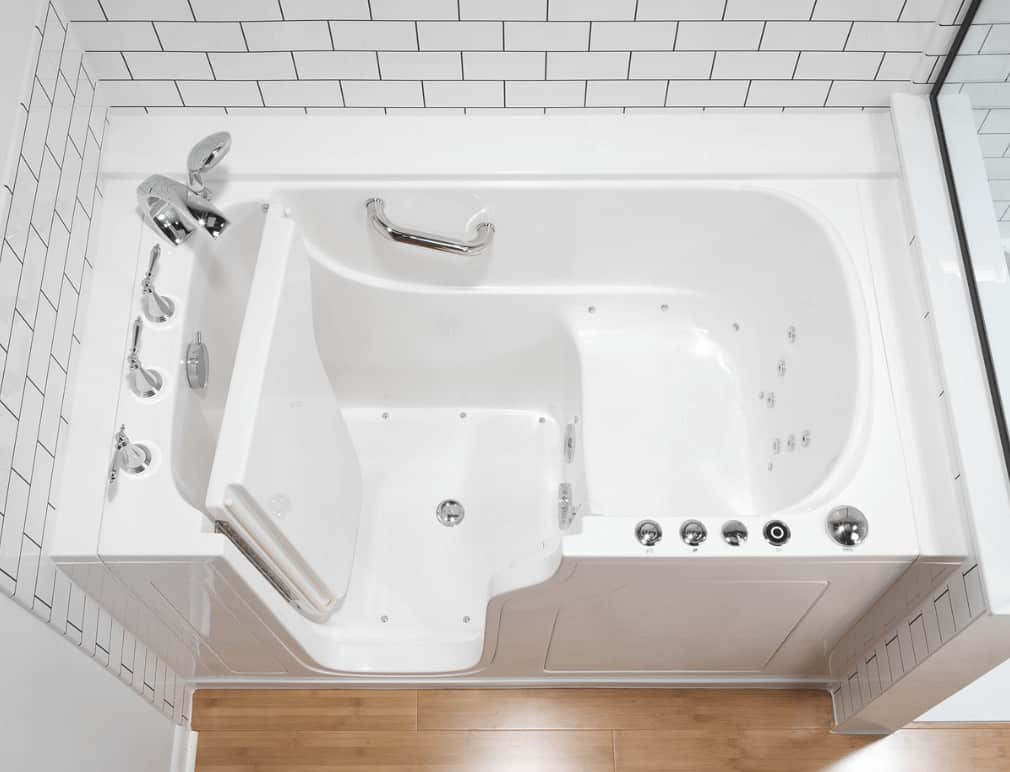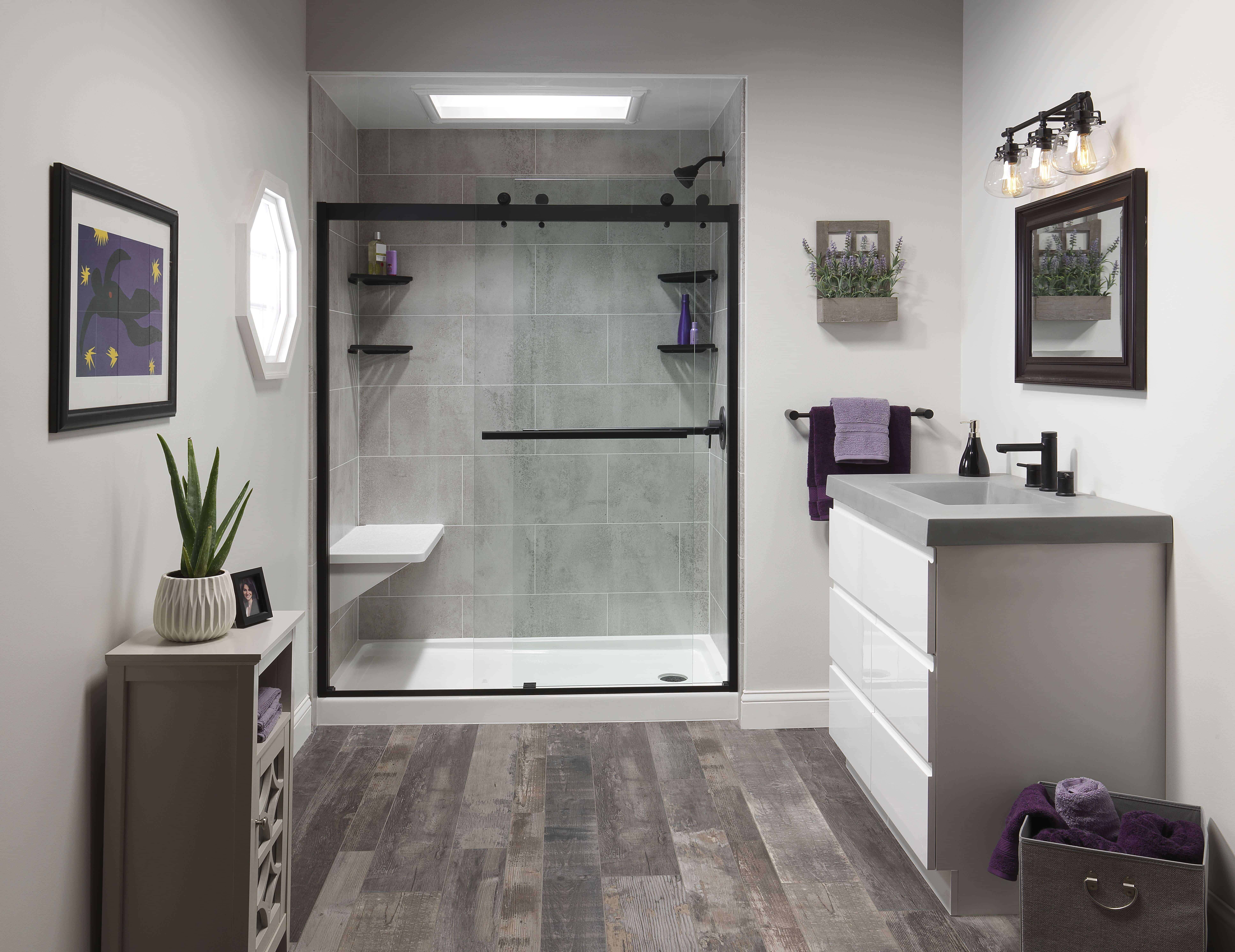Which types of bathtub materials are best? This is a complex question. When selecting the best material, most consider the cost, weight, durability, ease of cleaning and maintenance, and installation. For example, a cast iron tub may be durable and offers excellent heat retention. However, cast iron tubs often require additional support.
Here are the common types of bathtub materials. We’ll discuss the benefits of each type and rank them according to cost.
Contents
Bathtub Materials
If you are in the market for a new bathtub, you’ll find this guide to common bathtub materials helpful.
Fiberglass tub
Fiberglass is a reinforced plastic. It’s poured into a bathtub-shaped mold and then coated with resin. An additional acrylic finish is sometimes added to boost the material’s strength and scratch resistance.
The benefits of fiberglass tubs are that they are lightweight and easy to install. The surface is also easy to maintain and repairable.
Cost: $200 to $800. Fiberglass tubs are some of the most affordable on the market.
Enameled steel bathtubs
Enameled steel tubs are coated with porcelain enamel.
They offer a smooth, glossy finish. In addition, they are easy to clean as the surface is chemically resistant. Enameled steel tubs are also long-lasting.
Cost: $200 to $1,000
Acrylic bathtub
Acrylic is a popular bathtub material because it can be formed and molded into any bathtub shape. It’s reinforced with fiberglass.
Acrylic tubs are lightweight and offer excellent heat retention.
Cost: $700 to $1,000+
Cast iron tub
Cast iron tubs are made by reducing iron ore in a blast furnace. The molten iron is mixed with alloying elements and molded into the shape of a tub.
You can also purchase enameled cast iron tubs.
Cast iron bathtubs are known for being very long-lasting. The surface resists scratches and chips and retains heat for a long time.
Cost: $500 to $10,000+
Cast polymer
Cast polymer refers to the production of synthetic products like cultured marble, granite, or onyx and solid surface materials. During the casting process, liquid resin is poured into a bathtub mold. Cast polymer molds are usually coated with a gel for aesthetic reasons – and to make them easier to clean.
Cast polymer tubs are stain resistant, easy to clean, and come in various designs.
Cost: $2,000 to $5,000+
Stone tubs
You might find natural stone tubs in high-end homes. They are typically made from granite, onyx, marble, basalt, sandstone basalt, or travertine.
They are beautiful and sturdy – and very heavy.
Cost: $10,000 to $20,000
Other Bathtub Material Options
There are other tub materials that we didn’t cover. For example, you can purchase a copper or wood tub (made from African or Honduran teak, walnut, ash, cherry, or maple!) You can also create a tub out of ceramic tile. However, some of these options are more practical than others.
Contact Woodbridge Shower & Bath For Affordable, Easy-to-Clean Showers and Bathtubs
Learn more about the most common bathtub materials from the experts at Woodbridge Shower & Bath. Woodbridge is known in the DFW area for completing shower and bathtub remodeling jobs in as little as two days. While we don’t offer every type of bathtub material, our products are beautiful, easy to clean, durable, and affordable.
Learn more about Woodbridge Shower & Bath by contacting a member of our team.
Consider Pros and Cons of Bathtub Materials (Heat Retention, Cost, Ease of Cleaning)
- There are several bathtub materials, including fiberglass-reinforced plastic, enameled steel, acrylic, cast iron, and stone (or stone resin).
- There are pros and cons to each material. When considering bathtub materials, most consider the cost, weight, durability, and ease of cleaning.


